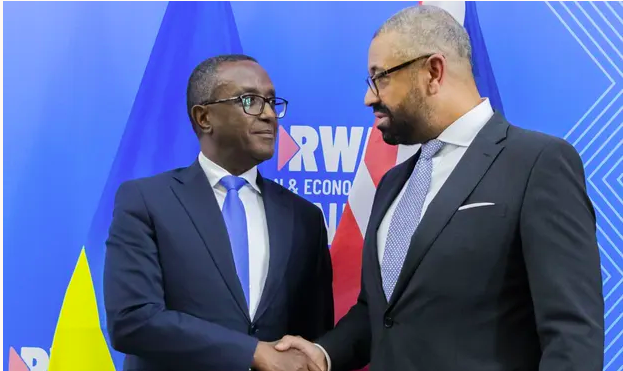
As the UK government advocates for its policy to deport asylum seekers to Rwanda, citing it as a safe destination, recent decisions by the Home Office tell a different story.
Investigations by The Observer and Led by Donkeys have revealed that in the past four months, four Rwandans were granted refugee status in the UK due to well-founded fears of persecution from President Paul Kagame’s regime.
This development raises questions about the UK’s stance on Rwanda’s safety for asylum seekers and contradicts Prime Minister Rishi Sunak’s claims.The granted asylum cases include individuals with links to Rwanda’s political opposition and those coerced into working for Rwandan intelligence.
Their fears reflect concerns about Rwanda’s well-camouflaged dictatorship and the risks associated with opposing the government. Despite Rwanda’s economic progress and partnerships with the UK, its treatment of political opponents and human rights activists remains a contentious issue.
The refugees, fearing for their safety, highlight the country’s repressive environment, contradicting the UK’s narrative of Rwanda as a safe haven for asylum seekers. Furthermore, Rwanda’s global image, carefully curated through international partnerships and media appearances, contrasts sharply with these asylum cases.
President Kagame, known for his presence in global forums like the World Economic Forum in Davos and his interactions with prominent figures, portrays a progressive and secure Rwanda. However, the country’s dark underbelly was exposed in Michela Wrong’s book, Assassins sans frontières, revealing a regime that ruthlessly pursues and often eliminates its critics, even beyond its borders. Wrong herself faced intense online vilification, orchestrated in part by the Rwandan regime and possibly aided by PR firms in London.
These tactics of transnational repression and digital campaigns to discredit critics align Rwanda with other authoritarian regimes known for their suppression of dissent.The UK’s policy to remove asylum seekers to Rwanda, aimed at deterring the arrival of small boats across the English Channel, stands in stark contrast to the realities faced by those escaping Kagame’s regime.
The UK’s recent treaty with Rwanda to ensure non-refoulement of deported asylum seekers and the establishment of an independent monitoring committee are attempts to address these concerns. However, the asylum cases highlight the ongoing human rights issues in Rwanda, questioning the viability of the UK’s deportation policy.




























































